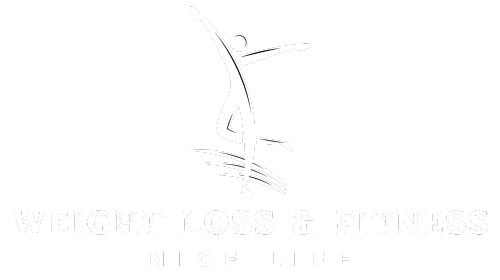The search for the best low carb diet plan for weight loss has garnered substantial attention. These dietary regimens center around the fundamental principle of minimizing carbohydrate intake while emphasizing the consumption of protein and healthy fats.
Gaining a comprehensive understanding of low carb diets and recognizing their pivotal role in effective weight loss can pave the way for transformative lifestyle changes.
As we delve deeper into the intricacies of low carb diet plans, it becomes evident that their impact on metabolism and body composition make them a compelling option for individuals seeking sustainable weight loss journeys.
I. Key Principles of an Effective Low Carb Diet Plan
Crafting best low carb diet plan for weight loss involves a strategic interplay of key principles that optimize both nutritional intake and metabolic responses.
Understanding these principles lays the foundation for a successful journey towards achieving weight loss goals.
A. Definition of Low Carb Diet in Terms of Carbohydrate Intake
At the heart of an impactful low carb diet plan lies a clear definition of carbohydrate intake. This typically involves limiting the consumption of foods rich in carbohydrates, such as grains, sugary treats, and starchy vegetables.
The goal is to regulate insulin and blood sugar levels by reducing the influx of glucose into the bloodstream.
While the exact daily carbohydrate allowance can vary, the central idea is to prioritize nutrient-dense, low-carb alternatives that support the body’s energy needs without triggering excessive fat storage.
B. Emphasis on High Protein and Healthy Fat Consumption
Protein and healthy fats take center stage in a well-structured low carb diet plan. Protein plays a crucial role in preserving lean muscle mass, supporting metabolism, and promoting satiety.
Incorporating lean sources of protein, such as poultry, fish, tofu, and legumes, ensures that the body maintains its muscle integrity while burning fat for energy.
Healthy fats, including sources like avocados, nuts, seeds, and olive oil, serve as essential components of a low carb diet.
These fats provide sustained energy, aid in nutrient absorption, and contribute to a feeling of fullness. The combination of ample protein and healthy fats helps individuals maintain an optimal macronutrient balance, which is key to successful weight loss and overall well-being.
C. Role of Minimizing Refined Sugars and Processed Foods
The best low carb diet plan for weight loss advocate for the reduction or elimination of refined sugars and heavily processed foods.
Refined sugars cause rapid spikes in blood sugar levels, triggering insulin release and potentially leading to fat storage.
Processed foods often contain hidden sugars and unhealthy trans fats that can sabotage weight loss efforts.
By minimizing the consumption of these culprits, individuals following a low carb diet plan can stabilize their blood sugar levels, curb cravings, and foster an environment conducive to fat burning.
Whole, unprocessed foods rich in vitamins, minerals, and fiber take precedence, providing sustained energy and promoting overall health.
Understanding and adhering to these fundamental principles not only ensure an effective low carb diet plan but also empower individuals with the tools they need to make informed dietary choices for lasting weight loss success.
II. Evaluating the Best Low Carb Diet Plan
In the quest for best low carb diet plan for weight loss, a thoughtful evaluation process is paramount.
Navigating the sea of available options requires a discerning approach that combines scientific research, personal preferences, and a focus on long-term sustainability.
A. Research-Based Approach to Determining Effectiveness
The efficacy of a low carb diet plan is best determined through a research-based lens. Scientific studies provide insights into how various dietary strategies impact weight loss, metabolic health, and overall well-being.
Analyzing research findings can offer valuable information about the potential benefits and drawbacks of specific low carb approaches.
Look for studies that examine factors such as changes in body composition, insulin sensitivity, and cholesterol levels among individuals following different low carb protocols.
Peer-reviewed research can guide the selection of a plan that aligns with evidence-based practices and offers a higher likelihood of achieving desired outcomes.
B. Consideration of Individual Preferences and Dietary Needs
While research provides a solid foundation, best low carb diet plan for weight loss also takes into account individual preferences and dietary requirements.
Every person’s body responds differently to various nutritional approaches, and a one-size-fits-all solution may not be optimal.
It’s crucial to consider factors like food preferences, cultural considerations, and any specific dietary restrictions when selecting a plan.
A sustainable low carb diet plan should be enjoyable and adaptable to individual tastes. Finding a plan that includes foods you enjoy and can realistically incorporate into your lifestyle increases the likelihood of long-term adherence and success.
C. Examination of Sustainable and Long-Term Results
The true measure of a successful low carb diet plan lies in its sustainability and long-term results. While rapid initial weight loss might be enticing, it’s important to consider whether the plan can be maintained over time.
Extreme restrictions or overly complex meal structures might lead to burnout and eventual discontinuation.
Evaluate the plan’s feasibility by assessing whether it encourages a balanced, varied, and nutrient-dense diet that can be maintained beyond short-term goals.
Plans that foster healthy eating habits and provide a realistic path to maintaining weight loss are often the most effective in the long run.
By combining a research-based approach, consideration of personal preferences, and an emphasis on sustainability, you can navigate the landscape of low carb diet plans with confidence, ultimately choosing a plan that aligns with your goals and sets the stage for lasting success.
III. Components of the Best Low Carb Diet Plan
Designing the best low carb diet plan for weight loss involves carefully orchestrating various components that synergize to promote effective fat loss, sustained energy, and overall well-being.
This section delves into the fundamental elements that constitute an optimal low carb diet plan.
A. Sample Meal Options and Food Choices
Creating balanced meals is at the heart of a successful low carb diet plan. The following components serve as building blocks for constructing satisfying and nutritious meals:
1. Lean Protein Sources: Incorporating lean proteins like chicken, turkey, fish, tofu, and legumes provides essential amino acids for muscle maintenance, supports metabolism, and imparts a sense of fullness.
2. Non-Starchy Vegetables: A wide variety of colorful, non-starchy vegetables such as leafy greens, broccoli, cauliflower, and peppers offer vitamins, minerals, and fiber with minimal impact on blood sugar levels.
3. Healthy Fats: Including sources of healthy fats, such as avocados, nuts, seeds, and olive oil, enhances satiety, aids nutrient absorption, and provides a sustained source of energy.
B. Meal Timing and Frequency
Strategically timing meals and considering frequency can optimize the effects of a low carb diet plan:
- Balanced Meal Spacing: Distributing meals evenly throughout the day helps stabilize blood sugar levels and prevents energy crashes. Aim for three main meals and consider smaller, nutrient-dense snacks if needed.
- Protein at Every Meal: Including protein in each meal supports muscle preservation and regulates hunger, contributing to an overall sense of fullness.
C. Hydration and Importance of Water Intake
Hydration is a vital yet often overlooked aspect of a successful low carb diet plan:
- Adequate Water Consumption: Drinking ample water throughout the day supports digestion, aids metabolism, and helps control appetite. Staying hydrated is essential, especially since some low carb diets can have a diuretic effect.
Keep in mind that personal preferences and individual needs play a significant role in crafting the perfect low carb diet plan.
While these components provide a framework, flexibility is key. Experiment with different food combinations, portion sizes, and meal timings to find what works best for your body and lifestyle.
Assembling a low carb diet plan that integrates these components thoughtfully can lead to sustainable weight loss, improved energy levels, and enhanced overall health.
Remember that the best low carb diet plan for weight loss is one that aligns with your preferences, promotes balanced nutrition, and can be maintained in the long term.
IV. Benefits of the Best Low Carb Diet Plan
Choosing best low carb diet plan for weight loss offers a range of compelling benefits that extend beyond the scale.
These advantages encompass rapid weight loss, improved blood sugar control, heightened satiety, and the potential for enhanced cardiovascular health.
A. Rapid Initial Weight Loss
One of the notable advantages of a well-structured low carb diet plan is the potential for rapid initial weight loss.
By restricting carbohydrate intake, the body shifts into a state where it relies on stored fat for energy, leading to quick reductions in water weight and excess body fat.
This swift decrease in weight can serve as a motivational boost for individuals embarking on their weight loss journey.
B. Improved Blood Sugar Control
Low carb diets are renowned for their positive impact on blood sugar control. By minimizing the intake of carbohydrates, particularly those that cause rapid spikes in blood glucose, these diets can help stabilize insulin levels.
This steadier insulin response is particularly beneficial for individuals with type 2 diabetes or those at risk of developing the condition.
Managing blood sugar levels effectively can contribute to enhanced overall health and reduced risk of complications.
C. Enhanced Satiety and Reduced Cravings
A key advantage of the best low carb diet plan for weight loss lies in their ability to enhance satiety and reduce cravings.
Protein and healthy fats, staples of these diets, are known for their appetite-suppressing qualities.
They promote a sense of fullness and satisfaction, helping individuals manage portion sizes and resist impulsive snacking.
This reduction in hunger and cravings can greatly facilitate adherence to the dietary plan.
D. Potential for Better Cardiovascular Health
Engaging in a low carb diet plan may offer potential benefits for cardiovascular health.
By emphasizing whole, nutrient-dense foods and limiting refined sugars and processed carbohydrates, these diets can contribute to improved lipid profiles, lower triglyceride levels, and better blood pressure control.
However, it’s important to note that individual responses can vary, and consulting a healthcare professional is advised, especially for those with pre-existing heart conditions.
Incorporating the best low carb diet plan for weight loss into one’s lifestyle can yield multi-faceted benefits that go beyond weight loss alone.
From improved metabolic markers to heightened satiety and potential cardiovascular advantages, the positive outcomes can enhance overall well-being and quality of life.
As with any dietary change, it’s essential to consult a healthcare provider before embarking on a new plan, especially if you have existing health conditions.
V. Potential Risks and Considerations
While best low carb diet plan for weight loss offers numerous benefits, it’s important to be aware of potential risks and considerations to make informed choices about your dietary journey.
A. Nutritional Deficiencies and Need for Proper Planning
Transitioning to a low carb diet plan requires careful consideration to prevent nutritional deficiencies.
Carbohydrates often serve as sources of essential vitamins, minerals, and dietary fiber. As carb intake is reduced, it’s crucial to ensure that the diet remains well-rounded and nutritionally balanced.
Focus on incorporating nutrient-rich foods, consider supplementation if needed, and consult a healthcare professional or registered dietitian to develop a plan that meets your specific nutritional requirements.
B. Adapting to the Low Carb Lifestyle
The shift to a low carb lifestyle might come with an adjustment period. Some individuals may experience “carb withdrawal” symptoms, including fatigue, headaches, and irritability.
Adapting to new eating habits can also be a psychological challenge, especially for those accustomed to carb-heavy diets.
Gradual implementation and seeking support from peers, friends, or professionals can aid in making the transition smoother.
C. Monitoring for Ketosis and Potential Side Effects
Certain low carb diets, particularly those very low in carbohydrates, can lead to a state of ketosis—a metabolic process in which the body uses fat for fuel.
While some people find this beneficial for weight loss and energy, others may experience side effects like bad breath, constipation, or “keto flu” symptoms during the initial phase.
Monitoring ketone levels, staying hydrated, and ensuring a well-rounded nutrient intake can mitigate these effects.
Additionally, some individuals, such as those with kidney issues or specific medical conditions, might need to exercise caution or consult with a healthcare provider before embarking on a low carb diet plan.
In summary, understanding the potential risks and considerations associated with a low carb diet plan is essential for making informed decisions about your dietary approach.
Proper planning, consulting professionals, and paying attention to your body’s responses can help you navigate the challenges and reap the benefits of a well-executed low carb lifestyle.
VI. Case Studies and Success Stories
Real-life experiences of individuals who have embraced the best low carb diet plan for weight loss provide invaluable insights into the practicality and effectiveness of such dietary approaches.
A. Personal Experiences of Individuals Who Have Followed the Plan
Listening to personal stories from individuals who have adopted a low carb lifestyle can shed light on the challenges, triumphs, and lifestyle changes associated with such diets.
These accounts often detail how individuals have modified their eating habits, overcome obstacles, and achieved their weight loss goals.
Learning about the factors that influenced their decision to choose a low carb approach and the strategies they employed can provide relatable guidance for others considering a similar path.
B. Before-and-After Transformations Showcasing Weight Loss Results
Before-and-after photos and testimonials offer visual evidence of the transformative potential of a well-executed low carb diet plan.
These transformations depict changes in body composition, overall health, and confidence.
Sharing such success stories can serve as motivational tools for those seeking inspiration to embark on their own weight loss journeys.
It’s important to note that individual experiences can vary widely, and what works for one person may not work for another.
The success stories presented should be viewed as motivational rather than prescriptive. They can offer a glimpse into the possibilities of the benefits a low carb diet plan might bring, while acknowledging that each individual’s journey is unique.
When considering adopting a low carb diet plan, it’s advisable to gather information from diverse sources, consult healthcare professionals, and create a personalized approach that aligns with your goals, preferences, and health status.
VII. Expert Recommendations and Opinions
Gaining insights from experts in the fields of nutrition and medicine is crucial when assessing the viability and potential benefits of the best low carb diet plan for weight loss.
Expert opinions provide a well-informed perspective that can guide individuals in making informed decisions about their dietary choices.
A. Input from Nutritionists and Dietitians
Nutritionists and registered dietitians are trained professionals who offer evidence-based guidance on dietary choices.
Their expertise extends beyond fad diets, focusing on long-term health and sustainable practices.
Consulting these professionals can help individuals tailor a low carb diet plan to their specific needs, ensuring they receive adequate nutrients while working towards their weight loss goals.
Nutritionists and dietitians can provide meal planning, address concerns about nutrient deficiencies, and offer strategies to navigate challenges that may arise during the dietary transition.
B. Insights from Medical Professionals about Health Implications
Medical professionals, including doctors and healthcare providers, play a critical role in assessing the health implications of dietary choices.
Consulting with a medical professional before making significant dietary changes, especially for individuals with underlying medical conditions, is essential.
Medical experts can help determine whether a low carb diet is appropriate based on an individual’s health history, provide insights into potential risks, and offer guidance to ensure that the chosen dietary approach aligns with overall health goals.
Expert recommendations and opinions should serve as valuable resources when considering a low carb diet plan, providing a balanced and well-rounded perspective.
Collaborating with professionals who specialize in nutrition and healthcare can help individuals make informed decisions that prioritize both weight loss and overall health.
VIII. Tips for Incorporating Exercise
Pairing a low carb diet plan for weight loss with regular physical activity can amplify results and promote overall well-being.
A. Role of Physical Activity in Enhancing Weight Loss
Physical activity plays a pivotal role in enhancing weight loss efforts when combined with a low carb diet plan.
Regular exercise helps burn calories, builds lean muscle mass, and improves metabolism. It also complements the metabolic shifts initiated by a low carb diet, further promoting fat loss and toning.
Exercise not only contributes to weight loss but also offers a host of health benefits, including improved cardiovascular health, increased energy levels, enhanced mood, and better insulin sensitivity.
The combined effects of dietary modifications and regular exercise create a comprehensive approach to achieving weight loss and fostering overall wellness.
B. Suitable Exercises for Individuals on a Low Carb Diet
Selecting appropriate exercises aligns with the energy availability and macronutrient balance of a low carb diet. Consider incorporating the following types of exercises:
- Strength Training: Engaging in resistance exercises like weightlifting or bodyweight workouts helps build lean muscle mass, which in turn boosts metabolism and contributes to calorie burning even at rest.
- Cardiovascular Exercise: Aerobic activities such as walking, jogging, cycling, and swimming promote cardiovascular health, enhance endurance, and aid in calorie expenditure.
- High-Intensity Interval Training (HIIT): HIIT involves alternating brief, high-intensity exercise bursts with short recovery periods. It’s an efficient way to burn calories, improve fitness, and promote fat loss.
- Flexibility and Balance Activities: Practices like yoga, Pilates, and stretching can improve flexibility, balance, and overall body awareness.
- Functional Workouts: Incorporate activities that mimic daily movements, such as squats, lunges, and push-ups, to enhance strength and functionality.
Remember, the intensity and duration of exercise should be tailored to individual fitness levels, health status, and personal preferences.
If engaging in more rigorous exercise, consider adjusting your dietary plan to ensure adequate energy and nutrient intake for optimal performance and recovery.
Incorporating exercise into your low carb lifestyle not only accelerates weight loss but also fosters holistic health.
Consultation with fitness professionals or healthcare providers can help you design a well-rounded exercise routine that complements your dietary goals and supports your overall fitness journey.
IX. Sample 7-Day Low Carb Diet Plan
A well-structured 7-day low carb diet plan for weight loss provides a practical roadmap for individuals looking to adopt this dietary approach.
A. Day-Wise Breakdown of Meals and Snacks
Day 1:
- Breakfast: Scrambled eggs with spinach and feta cheese
- Lunch: Grilled chicken salad with mixed greens, avocado, and olive oil dressing
- Snack: Greek yogurt with berries
- Dinner: Baked salmon with roasted broccoli and a side salad
Day 2:
- Breakfast: Greek yogurt parfait with nuts and a drizzle of honey
- Lunch: Turkey lettuce wraps with cucumber and tomato
- Snack: Sliced bell peppers with hummus
- Dinner: Zucchini noodles with sauce and lean ground turkey
Day 3:
- Breakfast: Omelette with mushrooms, onions, and cheese
- Lunch: Tuna salad with mixed greens, olives, and a vinaigrette dressing
- Snack: Cottage cheese with almonds
- Dinner: Grilled steak with asparagus and cauliflower mash
Day 4:
- Breakfast: Smoothie with spinach, berries, almond milk, and protein powder
- Lunch: Chicken and vegetable stir-fry with soy sauce
- Snack: String cheese
- Dinner: Baked cod with green beans and a side salad
Day 5:
- Breakfast: Chia seed pudding with coconut milk and sliced almonds
- Lunch: Egg salad lettuce wraps
- Snack: Celery sticks with peanut butter
- Dinner: Roast chicken with Brussels sprouts and a mixed vegetable medley
Day 6:
- Breakfast: Omelette with spinach, tomatoes, and feta cheese
- Lunch: Grilled shrimp salad with mixed greens, cucumber, and a lemon vinaigrette
- Snack: Almond butter with celery sticks
- Dinner: Baked chicken thighs with sautéed spinach and a side of mashed cauliflower
Day 7:
- Breakfast: Cottage cheese with sliced strawberries and a sprinkle of chopped nuts
- Lunch: Portobello mushroom cap stuffed with ground turkey and topped with melted cheese
- Snack: Hard-boiled egg
- Dinner: Roasted vegetable medley (bell peppers, zucchini, and eggplant) with grilled tofu
B. Caloric Intake Considerations
Caloric intake varies based on factors such as age, gender, activity level, and weight loss goals.
The best low carb diet plan for weight loss should provide an appropriate caloric deficit for weight loss while ensuring adequate nutrition.
Engaging with a registered dietitian can assist in pinpointing the appropriate calorie range tailored to your individual requirements.
For general reference, the sample meals provided above emphasize whole, nutrient-dense foods and lean protein sources while limiting carbohydrate intake.
Portion control and mindful eating play essential roles in achieving the desired caloric balance.
Remember that this sample plan is illustrative and should be tailored to your preferences and requirements.
Ensuring a variety of foods, sufficient protein, healthy fats, and a mix of non-starchy vegetables supports nutritional balance and enhances the sustainability of your low carb diet plan.
Before implementing any new dietary plan, especially one involving caloric restrictions, it’s advisable to consult with healthcare professionals to ensure the approach aligns with your individual health profile and weight loss goals.
X. Frequently Asked Questions about Low Carb Diet Plans
Navigating the realm of low carb diet plans for weight loss can spark a multitude of questions and concerns.
A. Addressing Common Queries and Misconceptions
- Are All Carbs Bad?: Not all carbs are created equal. While low carb diets advocate for reducing refined sugars and processed carbs, they encourage the consumption of nutrient-dense, complex carbohydrates found in whole grains and non-starchy vegetables.
- Will I Lack Energy?: With proper planning, a low carb diet can provide sustained energy. Healthy fats and protein sources can fuel your body, reducing reliance on carbohydrates.
- Do Low Carb Diets Mean No Fruits?: Low carb diets often limit fruits initially due to their natural sugars. However, small portions of berries and certain other fruits can be incorporated in moderation.
- Is Ketosis Necessary?: Ketosis, a state where the body burns fat for fuel, is not mandatory for weight loss. Some low carb plans may induce ketosis, but others focus on controlled carb intake without reaching ketosis.
B. Clarification on Sustainability and Long-Term Effects
1. Sustainability: The sustainability of a low carb diet plan depends on individual preferences and adaptability.
Some individuals find it manageable and enjoyable, while others may struggle with the restriction of certain foods.
Incorporating a wide variety of nutrient-dense foods can contribute to the long-term sustainability of the plan.
2. Long-Term Effects: Research on the long-term effects of low carb diets is ongoing. While these diets can lead to initial weight loss and improvements in metabolic markers, it’s important to focus on balanced nutrition and consult professionals to ensure you’re meeting your dietary needs.
3. Health Implications: It’s important to be mindful of any existing health conditions when adopting a low carb diet.
People with certain medical conditions or those on specific medications should consult healthcare professionals before making significant dietary changes.
4. Personalization: The best low carb diet plan for weight loss varies from person to person. Tailoring the plan to individual preferences, dietary needs, and health status is crucial for long-term success.
Remember that every individual’s body responds differently to dietary changes.
Seeking guidance from registered dietitians, healthcare providers, and experienced professionals can help you navigate the intricacies of low carb diet plans and make informed decisions about what works best for your unique circumstances.
XI. Conclusion
Embarking on a journey towards successful journey with best low carb diet plan for weight loss involves careful consideration, planning, and a commitment to long-term well-being.
This concluding section summarizes the benefits of a well-executed low carb diet plan and emphasizes the importance of seeking professional guidance before making dietary changes.
The benefits of embracing a well-designed low carb diet plan for weight loss are multi-faceted:
- Effective Weight Loss: By reducing carbohydrate intake, the body shifts towards using stored fat for energy, leading to gradual and sustainable weight loss.
- Improved Blood Sugar Control: Low carb diets can help stabilize blood sugar levels, making them a valuable option for individuals with insulin resistance or diabetes.
- Enhanced Satiety and Reduced Cravings: Protein and healthy fats in a low carb diet contribute to a feeling of fullness and reduced hunger, aiding adherence to the plan.
- Potential Cardiovascular Health Benefits: Emphasizing whole, nutrient-dense foods and healthy fats may contribute to improved cardiovascular markers.
Before embarking on any significant dietary changes, it’s crucial to seek professional guidance.
Registered dietitians, nutritionists, and healthcare providers can provide personalized recommendations based on your individual health profile, goals, and preferences.
Their expertise ensures that your chosen low carb diet plan aligns with your nutritional needs and supports your overall well-being.
In your pursuit of successful weight loss and improved health, remember that the journey is unique to you.
Balancing the benefits of a low carb diet plan with individual considerations is key to creating a sustainable, effective, and fulfilling dietary approach.
The decision to adopt a low carb lifestyle is an important one, and by making informed choices, seeking professional support, and maintaining a holistic approach to health, you can pave the way for reaching your objectives.













No Comments